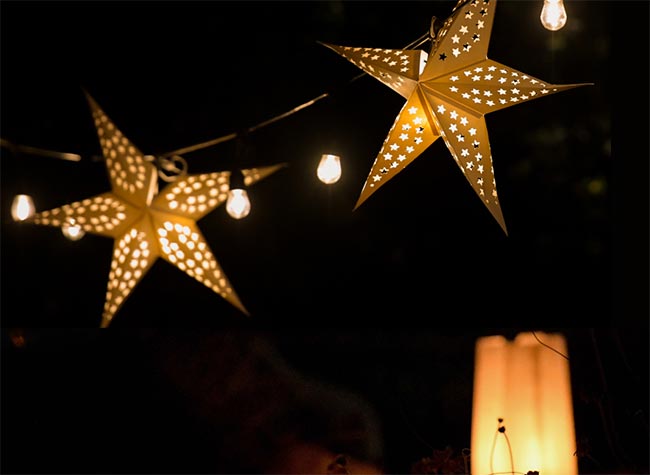Poet offers worldly advice for students
Louise Glück is in a category so rare as to be nearly oxymoronic. She’s a successful poet.
She’s published 10 books of poetry, plus a celebrated book of essays. Her collected works, Poems 1962-2012, is considered a must-have for the serious poetry reader.
Her accolades include a 2003 stint as the US Poet Laureate and receipt of the Pulitzer Prize for her 1992 book The Wild Iris as well as the National Book Award for her latest collection of poetry, Faithful and Virtuous Night (2014).
Ms. Glück appears to have the Midas touch when it comes to literary endeavors but—as she shared during an appearance at Claremont McKenna College’s Marian Miner Cook Athenaeum on Monday night—she’s no stranger to self-doubt. As a result, she prefers working as a teacher and writing in her spare time to spending her life with fingers poised over the keyboard.
“For some, the answer to art is a dutiful sojourn at the desk, so the poetry gods can see you’ve consecrated your life to their service,” she told the crowd. “I tried that during a very bleak and infertile period, and it made me crazy with terror. I thought, ‘This is the worst scenario. I’m not an artist.’”
Then, Ms. Glück attended a booze-lubricated after-party following a reading at Goddard University. Several faculty members told her she needed to teach there, and she pursued the post. “I figured I’m not a writer, I’d better try something.”
Ms. Glück, who currently holds adjunct professorships at Yale and Boston University, found the day job benefitted her writing process.
“Having obligations in the world—with its irritants, frustration and pleasure— was certainly at that point of life far more stimulating than all these hopeless hours at the desk,” she said.
Before a Q&A session, Ms. Glück read a sampling of work from her decades-long career.
Her poems aren’t intended to stand alone, she cautioned; rather, each is a small building block helping to construct an overarching theme. “I don’t think in terms of poems. I think in terms of books,” she explained.
Still, the audience of CMC students and faculty and community members was able to get a sense of her style as she read works ranging from 1968’s “Mock Orange” to poems written in recent months.
Ms. Glück’s repertoire is anything but happy-go-lucky. She writes about the ephemeral nature of life and its small consolations. She covers things like death, dying and broken love. Occasionally, such topics are addressed in a point-blank confessional style. More often, she approaches them through allegory, drawing on sources like Greek mythology and the Bible as well as assumed personas.
What keeps Ms. Glück’s work from being a slog through the sloughs of despair is her emphasis on dry-eyed reportage rather than self-pity. And just when her poetry hovers on the edge of abstraction, she hits readers with lines of neon-bright imagery.
In “An Adventure,” a poem from her most recent collection, she writes, “I became a glorious knight riding into the setting sun, and my heart became the steed underneath me.” In “A Work of Fiction,” she writes, “instinctively I lit a cigarette. In the dark, the cigarette glowed, like a fire lit by a survivor.”
And then there’s that wry sense of wit. In the 1986 poem “Siren,” she speaks as the other woman—who once blithely hoped for the destruction of her lover’s marriage but now understands the ravages of infidelity. “I became a criminal when I fell in love. Before that I was a waitress,” she said.
Then Ms. Glück was ready to field some questions. The students, many pondering a career in writing, were eager to find out what makes an accomplished writer tick.
Her favorite poet is T.S. Elliot. When Ms. Glück is mired in abstraction and “in danger of floating off the planet,” her prescription is the more accessible poems of imagist writer William Carlos Williams. Williams’ most famous poem features one sentence in four stanzas: “so much depends upon/a red wheel barrow/glazed with rain water/beside the white chickens.”
Those venerable writers provide a touchstone for the poet, but she has another potent source of inspiration. Ms. Glück, sporting a gray bob and a black turtleneck with cutouts revealing her shoulders, said she’s enlivened by reading books by poets she’s never heard of. “I feel as though the young are the people who keep my synapses moving and open,” she said.
She’s not one to mislead her students by depicting the writing life as easy. In her book of essays, Proofs and Theories, she doesn’t mince words: “Most writers spend much of their time in various kinds of torment: wanting to write, being unable to write, wanting to write differently, being unable to write differently.”
She has some tricks up her sleeve, though. One student asked how she knows when work is good. She doesn’t, Ms. Glück admitted. “But if you keep poking at [a poem] and keep being pleased, it’s a good indication.”
Ms. Glück then looks to a higher power, that of the well-measured critique. “I show my work to a couple of friends who are discriminating and hard critics,” she said. “I’ve had friends who have told me the truth but their ideas were catastrophically bad. It’s about friends who hear the intention that you weren’t even able to form.”
She also relies heavily on intuition.
“I work on a typewriter often. If I’m typing and I get to place where my fingers hesitate, I know it’s a place where the poem has gone bad,” she said.
One student wondered if all of Ms. Glück’s poems are autobiographical, considering that so many of them center on loss.
Earlier, the writer read a poem about the death of her father. He was not, she told the audience afterwards, dead at the time she wrote it.
“There’s an assumption that when you write about family matters, you’re simply writing down that which has occurred,” she said. “In this case, I was setting down an imaginary construct in which my father would be more effective if he were dead.”
So no, Ms. Glück emphasized, not all of her poems stem from real trauma.
“My God! If I had that many individual losses, how could I be standing before you? Loss happens to be a preoccupation of mine. It haunts me. When it happens to me, it happens big,” she said.
“It’s a big thing, but it’s not a big thing because I keep having losses,” Ms. Glück continued. “I don’t keep buying goldfish and wait for them to die.”
—Sarah Torribio
storribio@claremont-courier.com










0 Comments